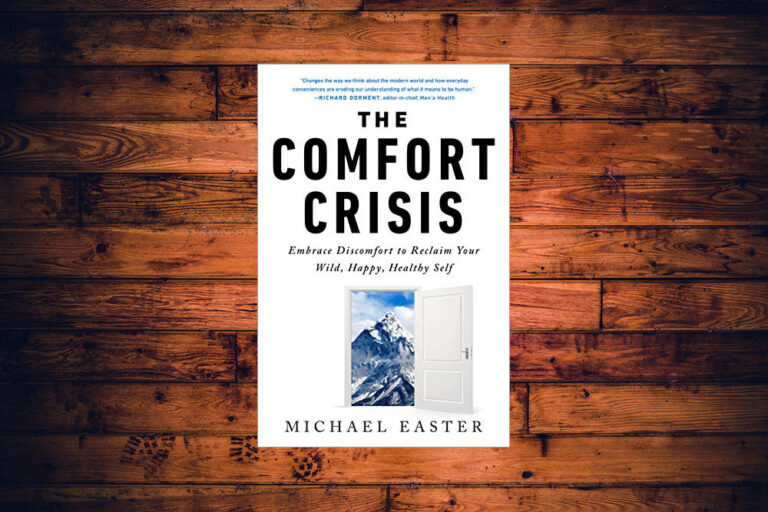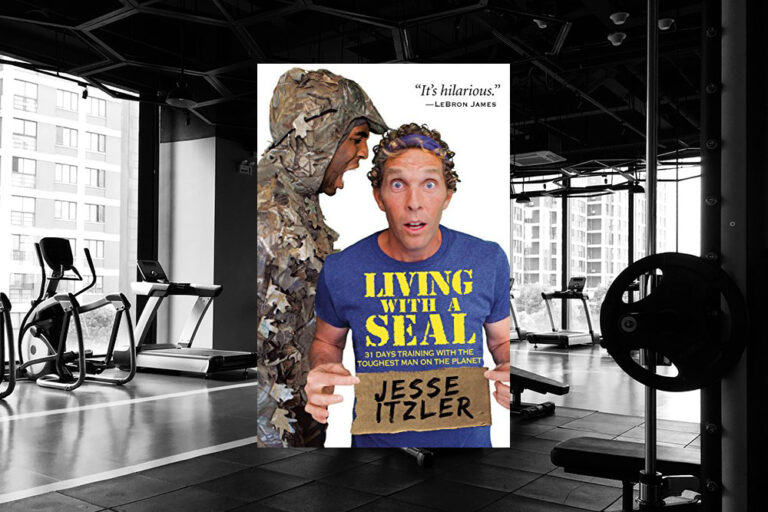#29: Becoming Uncommon Among the Uncommon. Lessons From “Can’t Hurt Me” by David Goggins (Part 5)

In the final part of my notes based on David Goggins’s autobiography Can’t Hurt Me: Master Your Mind and Defy the Odds we’ll talk about becoming uncommon among the uncommon.
For David, the only life worth living is life in which you aim to reach your full potential.
He not only wants to become the best—he wants to become the best of the best. That’s why throughout his military career and later as an ultra-runner he kept looking for new, increasingly harder challenges. In his book Living With a SEAL Jesse Itzler shows how David is always striving for more.
Here are 7 lessons from the book on how to become uncommon like David.
(Side note: if you want even more lessons from David, I created a list of the best David Goggins podcast interviews.)
Surpass the Standards
Choose any competitive situation that you’re in right now. Who is your opponent? Is it your teacher or coach, your boss, an unruly client? No matter how they’re treating you there is one way to not only earn their respect, but turn the tables. Excellence.
That may mean acing an exam, or crafting an ideal proposal, or smashing a sales goal. Whatever it is, I want you to work harder on that project or in that class than you ever have before. Do everything exactly as they ask, and whatever standard they set as an ideal outcome, you should be aiming to surpass that.
David isn’t satisfied with merely meeting the standards. To become uncommon among the uncommon, you always need to be at least one step ahead of others. That involves surpassing the standards you’re given.
This is particularly important if you’re working with a coach or a superior. Few people consistently pursue excellence, so it makes you stand out and creates new opportunities reserved only for the best performers.
Do You Habitually Settle for Less Than Your Best?
SEAL training had pushed me to the brink several times, but whenever it beat me down I popped up to take another pounding. That experience made me hard, but it also left me wanting more of the same, and day-to-day Navy SEAL life just wasn’t like that. Then came the San Diego One Day, and now this. I’d finished a marathon at an elite pace (for a weekend warrior) when I had no business even walking a mile. Both were incredible physical feats that didn’t seem possible. But they’d happened.
What am I capable of?
I couldn’t answer that question, but as I looked around the finish line that day and considered what I’d accomplished, it became clear that we are all leaving a lot of money on the table without realizing it. We habitually settle for less than our best; at work, in school, in our relationships, and on the playing field or race course. We settle as individuals, and we teach our children to settle for less than their best, and all of that ripples out, merges, and multiplies within our communities and society as a whole.
We can change our lives with one simple question: what am I capable of?
Exploring the answer by consistently aiming for more and more—instead of settling for less than our best—will inevitably bring us to the same realization that David had after his greatest accomplishments. Namely: we don’t know what we can do until we push ourselves to the brink.
No amount of reading or thinking about it can replace the actual real world experience. It’s only through testing yourself that you can see how much potential you’re not tapping into.
For example, I’m currently working on a long-distance swimming goal (I’m keeping it to myself until I reach it). The distance that this season is merely a stepping stone to my goal was something I’ve never done before. Last year, I was swimming distances that were 2-3x shorter and thinking that I was swimming a lot.
When I look back at my swimming sessions last year I can’t help but think I wasn’t even tapping into 10% of my potential. It’s only because this season I refuse to settle for less than my best that I’m exploring what I’m capable of.
Be Willing to Embrace Ignorance
Starting at zero is a mindset that says my refrigerator is never full, and it never will be. We can always become stronger and more agile, mentally and physically. We can always become more capable and more reliable. Since that’s the case we should never feel that our work is done. There is always more to do.
Are you an experienced scuba diver? Great, shed your gear, take a deep breath and become a one-hundred-foot free diver. Are you a badass triathlete? Cool, learn how to rock climb. Are you enjoying a wildly successful career? Wonderful, learn a new language or skill. Get a second degree. Always be willing to embrace ignorance and become the dumb fuck in the classroom again, because that is the only way to expand your body of knowledge and body of work. It’s the only way to expand your mind.
Those who are uncommon among the uncommon never rest on their laurels. They always expand in their chosen fields, constantly finding new ways to embrace ignorance so they can broaden their horizons.
Once you get to that uncommon level of performance in your chosen field, you don’t rest there. Quite the contrary: you get even more obsessed about improvement because you know that your work is never done. As the saying goes, the more you know, the more you realize you don’t know.
As David writes later in the book:
Most people in the world, if they ever push themselves at all, are willing to push themselves only so far. Once they reach a cushy plateau, they chill the fuck out and enjoy their rewards, but there’s another phrase for that mentality. It’s called getting soft, and that I could not abide.
I like how David suggests to go beyond your current domain to grow even further. Only uncommon scuba divers would keep their minds so open as to try freediving. Only uncommon triathletes would train rock climbing as well.
Most people tend to get stuck in whatever they get good at, not wanting to become novices again. And that’s precisely the fate David warns against.
The moment you’re afraid of being that new dumb guy (because you’re too comfortable doing what you’re good at) is the moment that’s exactly what you need to do to progress in life.
Schedule Your Life As If You’re On a Mission
Our culture has become hooked on the quick-fix, the life hack, efficiency. Everyone is on the hunt for that simple action algorithm that nets maximum profit with the least amount of effort. There’s no denying this attitude may get you some of the trappings of success, if you’re lucky, but it will not lead to a calloused mind or self-mastery. If you want to master the mind and remove your governor, you’ll have to become addicted to hard work. Because passion and obsession, even talent, are only useful tools if you have the work ethic to back them up.
My work ethic is the single most important factor in all of my accomplishments. Everything else is secondary, and when it comes to hard work, whether in the gym or on the job, The 40% Rule applies. To me, a forty-hour work week is a 40 percent effort. It may be satisfactory, but that’s another word for mediocrity. Don’t settle for a forty-hour work week. There are 168 hours in a week! That means you have the hours to put in that extra time at work without skimping on your exercise. It means streamlining your nutrition, spending quality time with your wife and kids. It means scheduling your life like you’re on a twenty-four-hour mission every single day.
A strong work ethic starts with efficient time management. To make the most of each week, David suggests evaluating how you spend your time and ruthlessly cutting low-value activities.
As he writes:
Evaluate your life in its totality! We all waste so much time doing meaningless bullshit. We burn hours on social media and watching television, which by the end of the year would add up to entire days and weeks if you tabulated time like you do your taxes. You should, because if you knew the truth you’d deactivate your Facebook account STAT, and cut your cable. When you find yourself having frivolous conversations or becoming ensnared in activities that don’t better you in any way, move the fuck on!
For most men, cutting out just two aforementioned activities—TV and social media—would leave them with hours each day to spend on self-improvement. As David puts it later in the book:
Analyze your schedule, kill your empty habits, burn out the bullshit, and see what’s left. Is it one hour per day? Three? Now maximize that shit.
Stay Humble and Bring Others With You
That’s the drawback of becoming uncommon amongst uncommon. You can push yourself to a place that is beyond the current capability or temporal mindset of the people you work with, and that’s okay. Just know that your supposed superiority is a figment of your own ego. So don’t lord it over them, because it won’t help you advance as a team or as an individual in your field. Instead of getting angry that your colleagues can’t keep up, help pick your colleagues up and bring them with you!
We are all fighting the same battle. All of us are torn between comfort and performance, between settling for mediocrity or being willing to suffer in order to become our best self, all the damn time.
When we pursue the goal of becoming uncommon among the uncommon, we don’t do it so that we can feel better than others. It’s not about a false sense of superiority or putting others down, laughing at how soft and weak they are. We pursue excellence for ourselves.
Be mindful of how you treat other people when you push yourself beyond your limits. The fact that they don’t share your views doesn’t mean it’s okay to get angry at them or criticize them.
You don’t know their story. Chances are they’re also fighting a battle between comfort and growth but they may be a few steps behind you. Don’t denigrate. Elevate them.
Look for Friction to Keep Growing
It’s easy to stand out amongst everyday people and be a big fish in a small pond. It is a much more difficult task when you are a wolf surrounded by wolves.
This means not only getting into Wharton Business School, but being ranked #1 in your class. It means not just graduating BUD/S, but becoming Enlisted Honor Man in Army Ranger School then going out and finishing Badwater.
Torch the complacency you feel gathering around you, your coworkers, and teammates in that rare air. Continue to put obstacles in front of yourself, because that’s where you’ll find the friction that will help you grow even stronger. Before you know it, you will stand alone.
Becoming uncommon is one thing. Becoming uncommon among the uncommon—or as David puts it, a wolf surrounded by wolves—is a whole another level of difficulty.
Because now you’re competing against the best of the best, complacency isn’t going to cut it. The moment you stop growing is the moment others start passing you while you stay back.
David suggests continuously putting obstacles in front of you. That’s how you create friction that will help you gain an edge among other uncommon people.
For example, if you own the best construction company in your city, what kind of challenges can you create for yourself and your team to grow even stronger? What would it take to become the best construction company in your state? What would you have to do to be recognized as one of the best builders in the entire country?
On an individual level, let’s imagine that you’re the greatest surfer at your local break. But how can you become so good that you can carry yourself with confidence among the pros? Could it help to train freediving? Could you benefit from surfing on a different board you’re not that comfortable with? Could it help to surf types of breaks and waves that you usually avoid? Could you hire a coach?
Friction leads to growth, regardless of how good you are at something. To avoid getting eaten by other wolves, resist complacency and keep looking for new challenges to get uncomfortable.
What If?
We are all our own worst haters and doubters because self doubt is a natural reaction to any bold attempt to change your life for the better. You can’t stop it from blooming in your brain, but you can neutralize it, and all the other external chatter by asking, What if?
What if is an exquisite fuck-you to anyone who has ever doubted your greatness or stood in your way. It silences negativity. It’s a reminder that you don’t really know what you’re capable of until you put everything you’ve got on the line. It makes the impossible feel at least a little more possible. What if is the power and permission to face down your darkest demons, your very worst memories, and accept them as part of your history. If and when you do that, you will be able to use them as fuel to envision the most audacious, outrageous achievement and go get it.
To finish this article series on David Goggins’s book Can’t Hurt Me: Master Your Mind and Defy the Odds I wanted to bring it back to one of the core questions posed in the book: what if?
What if, against all odds, you can become uncommon among the uncommon?
What if, despite self-doubt, fear, and naysayers, you can go well past your limits?
What if, despite your current bad life situation, you can completely turn it around and be a completely different human being a year from now?
Consistently asking yourself “What if?” is a way to see the world as a place full of possibilities instead of limitations. So embrace this uncommon mentality.
What if you could accomplish the impossible? What would your first step be to make it a reality?
Questions to Ponder
1. Are you merely meeting the standards given to you or are you always aiming to surpass them?
2. Do you habitually settle for less than your best? Why’s that so? Is it because of laziness, other priorities, fear, or something else?
3. If you achieved your goals in a specific field, do you rest on your laurels and stop improving or keep finding new ways to get better despite already being great at it?
4. How strong is your work ethic on a scale of 1 to 10? How can you improve it?
5. Do you consider yourself superior because you’re uncommon among the uncommon? If so, are you aware how it can negatively impact your relationships?
6. Do you continuously put obstacles in front of yourself to create friction needed to grow?
7. What if you can achieve that impossible goal you’ve been thinking about for so long?
If you want more advice on how to become uncommon among the uncommon, sign up for a free weekly Discomfort Club newsletter. Enter your email address below:





